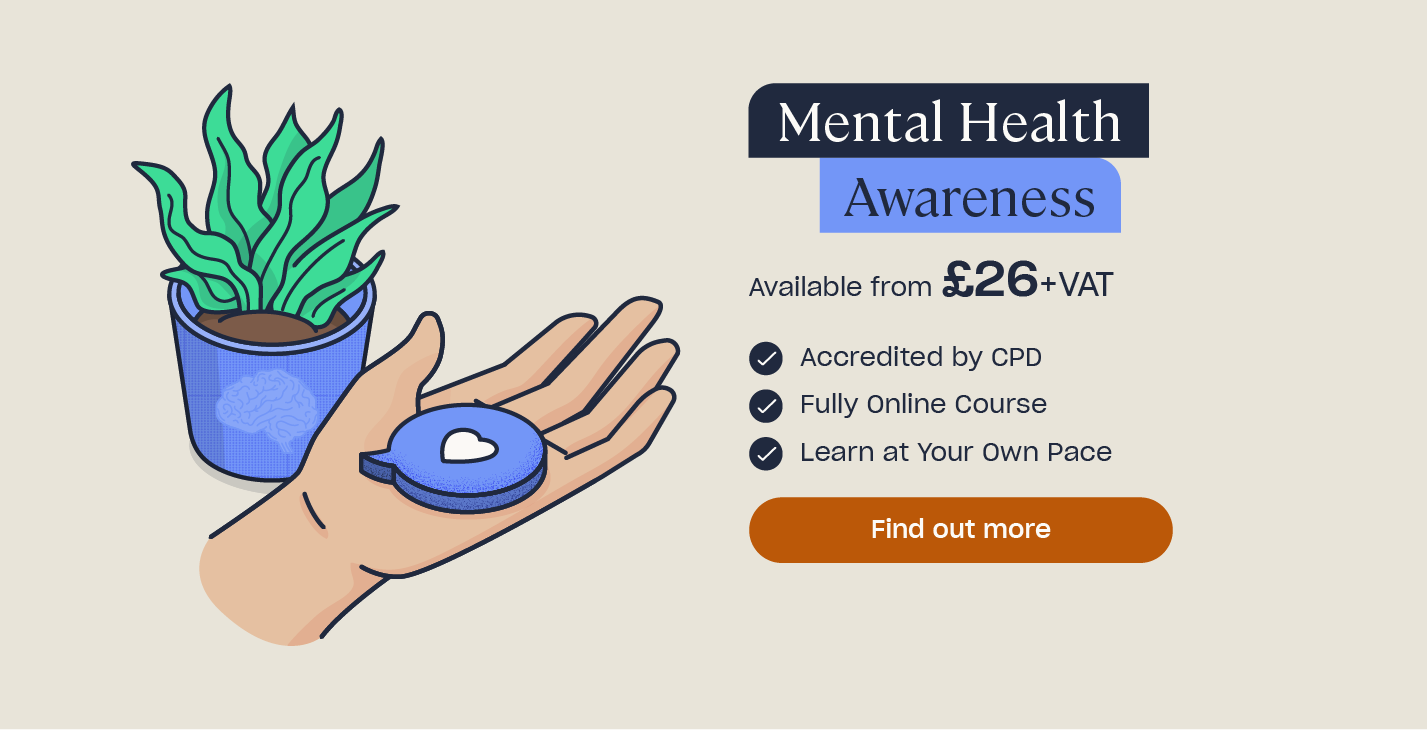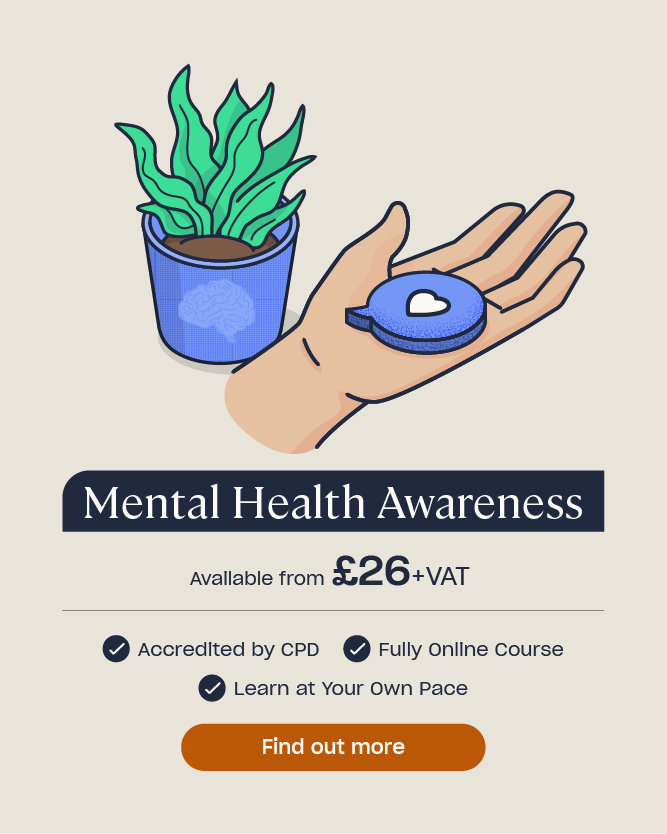Reading and Mental Health: What are the Benefits?
According to a recent parliamentary report an estimated one in six adults in England will have experienced a common mental health condition, such as depression or anxiety, in the past week. As our awareness of mental health issues grows, it is clear that we need to prioritise promoting positive mental health – both our own mental health and that of our colleagues, employees, friends and family. One activity that has proven to have positive effects on mental health is reading.
In this article, we will look at the role that reading can play in promoting positive mental health. We will consider some of the general benefits and also look at some specific ways that reading can be used as a tool to improve our wellbeing.

Literacy and Mental Health
Before considering the many benefits of reading, it is worth noting that simply having the literacy skills that enable you to read can be a protective factor for mental health. People who are unable to read are more likely to experience mental ill-health.
According to the National Literacy Trust, 16.4% of adults in England (which equates to 7.1 million people) can be described as having ‘very poor literacy skills’. Being unable to read can significantly affect an individual’s outcomes in many areas of life, which can, in turn, detrimentally affect their mental health.
A 2023 global study by scholars at the University of East Anglia, found a ‘significant association between literacy and mental health outcomes across multiple countries’.
Benefits of Reading on Mental Health
For those people who do have the literacy skills to access reading, there are a great many benefits, some of which we will look at in this section of the article.
Each person will have their own preferences when it comes to reading material – you might prefer to read physical books, newspapers or magazines, or access content in online or electronic formats, for example.
The types of written content that you might want to read could include:
- Fiction – including novels, short stories, graphic novels and picture books.
- Nonfiction – including factual books, magazines, newspapers or journals.
- Poetry
The benefits of reading with regards to mental health include:
Relaxation
Reading can be used as a form of relaxation. You stop, usually sit somewhere comfortable, and give your full attention to the activity. One study (Mindlab International, Sussex University, 2009), found that reading silently for just six minutes was enough to slow down the heart rate and ease tension in the muscles – in turn reducing stress.

You might want to experiment with types of content to see which you find most relaxing. For example, if current affairs cause you anxiety generally, then you may not want to opt to read a newspaper for relaxation purposes.
By becoming absorbed in what you are reading, you are able to escape your own thoughts and concerns for a while. Reading can be a mindful activity, grounding your thoughts in the words on the page.
Need a Course?
Our range of mental health courses, including Mental Health Awareness, Child Mental Health Training and Mental Health Awareness for Managers, aims to increase your understanding of mental health, common mental health conditions and how to promote positive mental health.
Sleep
Sleep hygiene – developing healthy behaviours and routines to help you get the best night’s sleep possible – can be a powerful tool in promoting good mental health. Disturbed sleep can be a feature of mental ill-health and can also exacerbate any issues that you might be experiencing. When we are tired, we are likely to be less resilient.
Reading can form a part of a successful sleep routine. Reading before bed can help your mind wind down, help you ease into sleep – resulting in a better night’s sleep than if you use screen based activity before bed.
Allocating a section of your evening to reading before bed can not only help you to relax before going to sleep, but can also serve as some important time to dedicate to a pleasurable hobby. Allowing time for your hobbies is another way that you can help promote your own mental wellbeing.
Empathy
Reading is an exercise in empathy; an exercise in walking in someone else’s shoes for a while.
Malorie Blackman
One US study showed that reading fiction can increase how empathetic a person is, by allowing them to become emotionally connected to the experiences of the characters.
Empathy can be beneficial to our own mental health as it increases our ability to relate to others and improve our communications. Empathy can also be self-directed – rather than being hard on ourselves and thinking negatively about our thoughts and actions, we can show empathy and understanding towards our own experience in the same way we would others.

Representation
We read to know that we are not alone.
C S Lewis
Reading opens up our access to experiences. As well as empathising with the lives of others, reading can be a powerful way to see elements of our own experiences reflected in the experiences we are reading about. If this relates to something directly impacting your own mental health, reading about others’ similar situations can help you feel that you are not alone in the experience; that your experience is valid.
Bibliotherapy
Bibliotherapy is a specific intervention where reading material is used as part of therapeutic treatment of mental health issues. This might happen alongside talking therapies or other inventions. The material can include books that build knowledge of mental health issues or conditions and those that explain techniques or strategies, such as Cognitive Behaviour Therapy (CBT) or mindfulness.
The Reading Well programme supports people in England and Wales to use reading to help them understand and manage their mental health. Their website contains useful booklists, organised by topic, which people can then access via their local library.
How to Use Reading for Mental Health
There are many ways you can make the most of the benefits that we have detailed above. Here are some practical tips:
Build Reading into Your Daily Routine
Just setting some time aside for yourself can be a powerful way to prioritise your own mental health. You are giving yourself permission to take time to do something for you. Pair this time with some reading. It could be ten minutes first thing in the morning, half an hour wind down reading before bed or using your commute to work to read rather than answer emails – any time that fits with your own routine.
If you are unsure where to start with choosing books, you can find many online recommendation lists, from best books of the 21st century to the top 100 classics to read.
Read with Others
Connections with others form a protective factor in terms of our mental health. Reading to, or with, others can be a great way to benefit from, and share the advantages of, reading.
Reading with Children
This could be reading to your children or hearing them read (or ideally both). This is a hugely important way to develop them as readers – both in terms of practice and in modelling the importance of reading. It can also provide you with some dedicated, quality time together in your day. Reading with children can be a great way to begin to talk to your children about their own mental wellbeing and feelings, using what you have read as a springboard.
For ideas and inspiration about books to read with children, check out the Book Trust website, which contains recommendations for different age groups and on different topics.
You could also volunteer to read with children at a local school or via charities such as Bookmark. Volunteering in itself can be a great way to boost your own mental wellbeing – helping others has positive effects on our mental health.

Reading with Adults
There are other volunteering opportunities where you could make a difference by supporting someone who is looking to improve their literacy skills. Literacy charity Read Easy, provides training for volunteers to help support adult literacy skills and then pairs them with someone to work with.
The Shannon Trust runs reading programmes in prisons across the UK. Over 50% of people in prison struggle with reading, or are unable to read. The Trust offers training to volunteers, who then work with those in prison to help them learn to read, or improve their reading skills.
It may also be possible to volunteer to organise reading groups or to read aloud to residents at local care homes. Shared reading groups have been shown to improve the wellbeing of residents, and poetry is thought to be particularly powerful for those living with dementia.
Book Clubs
Book clubs can be a great way to meet people. The books provide a shared focus which means that there is a structure to the social interaction. This can be particularly beneficial for people who find unpredictable social situations challenging or uncomfortable. Having a book to read and discuss also means that you are able to share your own thoughts, and benefit from the insights of others. Knowing that you need to read a book in time for the next session can also help you to continue to prioritise reading in your daily routine.
Local libraries often run book clubs but you can easily form an informal book club with a few friends or colleagues, if you prefer. They are a great way to get to know workmates better. You can run book clubs virtually or in person.
Reading can have many benefits in promoting and protecting our mental health. By prioritising reading in a way that works for you, you can boost relaxation, empathy and connectedness – positively benefiting your wellbeing.
Further Resources:
- Stress Management Activities to Try at Home
- How to Talk About Mental Health
- The Benefits of Exercise on Mental Health
- Why is Reading so Important for Children?
- The Link Between Food and Mental Health
- How to Manage Your Stress Dreams
- Mental Health Awareness Training







